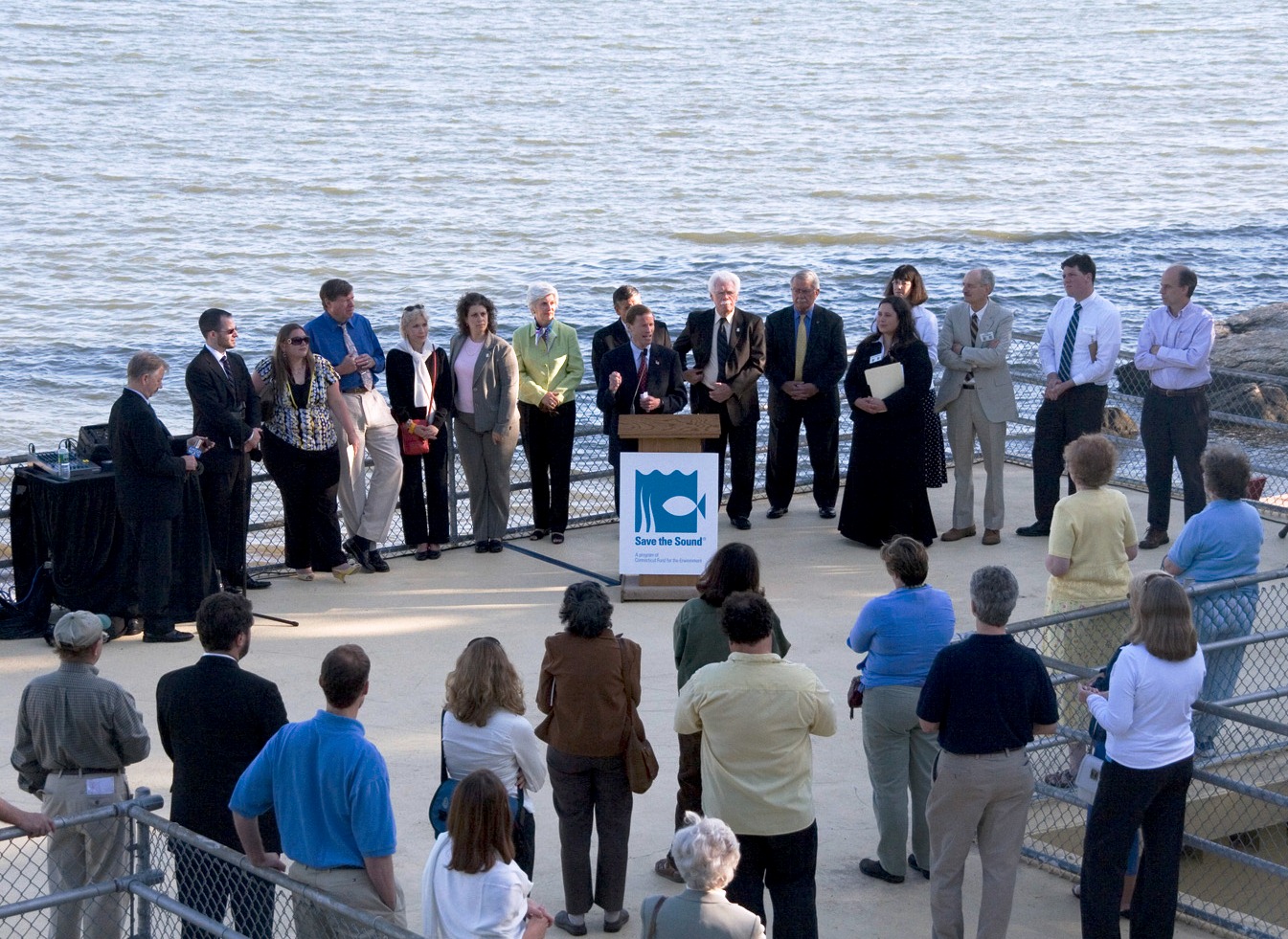That’s what we’ve been saying here at CFE/Save the Sound this week. Yesterday, an article in the Boston Globe came out about two LNG terminals built off the North Shore of Massachusetts that are just sitting idle now, with $750 million worth of unused buoys and pipes sitting in the ocean.

For those who don’t remember, Broadwater was a massive 20-story liquefied natural gas plant proposed for the middle of Long Island Sound, around 10 miles off the coast of New Haven.
During the Broadwater debate, we successfully argued that there are energy alternatives (such as conservation and existing natural gas supplies) and siting alternatives outside of the Sound that are less destructive. In fact, in 2006 we commissioned an alternatives analysis, “Broadwater LNG Import Terminal Proposal: An Analysis Assessment of Alternatives,” by Synapse Energy Economics in Cambridge, MA, to look at the energy issues surrounding Broadwater.
In a statement from 2006, we said:
“Broadwater Energy would only add to, not replace, existing energy supplies. Therefore, the air we breathe won’t be any cleaner than the air we currently breathe, which is polluted with the emissions of dirty coal-fired power plants in Middletown, Bridgeport, Norwalk, Montville and Milford.”
“What’s more, a project like Broadwater would threaten the health and safety of Connecticut and New York residents as well as boaters who happen to be in the vicinity of the plant should there be an accident, a leak or a spill.”
While Broadwater Energy would worsen an already heavy U.S. dependence on foreign sources of fuel, it would be an unnecessary addition to the region’s energy supply, as is seen in ‘Broadwater LNG Import Terminal Proposal: An Analysis and Assessment of Alternatives,’ by Synapse Energy Economics, Cambridge, MA.
After studying the potential impacts of the proposed Broadwater Energy LNG storage facility on the citizens of Connecticut and New York and the environment, “An Analysis and Assessment of Alternatives” shows that, in terms of the economy, the environment and energy supply and demand, our regional energy needs are in greater need of a regional energy plan than they are in need of more imports of natural gas from foreign lands.
The best way to address the region’s energy issues is to assess the actual needs of the region and create a roadmap of how to get there. CFE proposes that citizens and energy experts, not energy companies, focus our efforts on working together to determine how best to meet our region’s energy needs with an environmentally responsible energy plan rather than allowing a multi-national energy conglomerate come in to improve their bottom line without regard to larger issues of economics, politics, public safety and the environment.
We’re pleased that since that statement, Connecticut has taken many positive steps towards clean energy. There is now only one remaining coal-fired plant in the state, Bridgeport Harbor Station. Energy policy is now being coordinated in a more unified way under the new Department of Energy and Environmental Protection. Additionally, late last year the Governor and CTDEEP released a draft Comprehensive Energy Strategy for the state that puts a major focus on energy efficiency investment. We are currently awaiting the release of the final CES, and looking forward to working with CTDEEP and the state legislature to implement many of its proposals.
Connecticut and Long Island would have been in the same boat as Massachusetts if the Broadwater terminal hadn’t been blocked. Luckily, we scored a major victory in 2008 when New York State rejected Broadwater’s application.
Posted by Rebecca Kaplan, director of communications for CFE/Save the Sound
